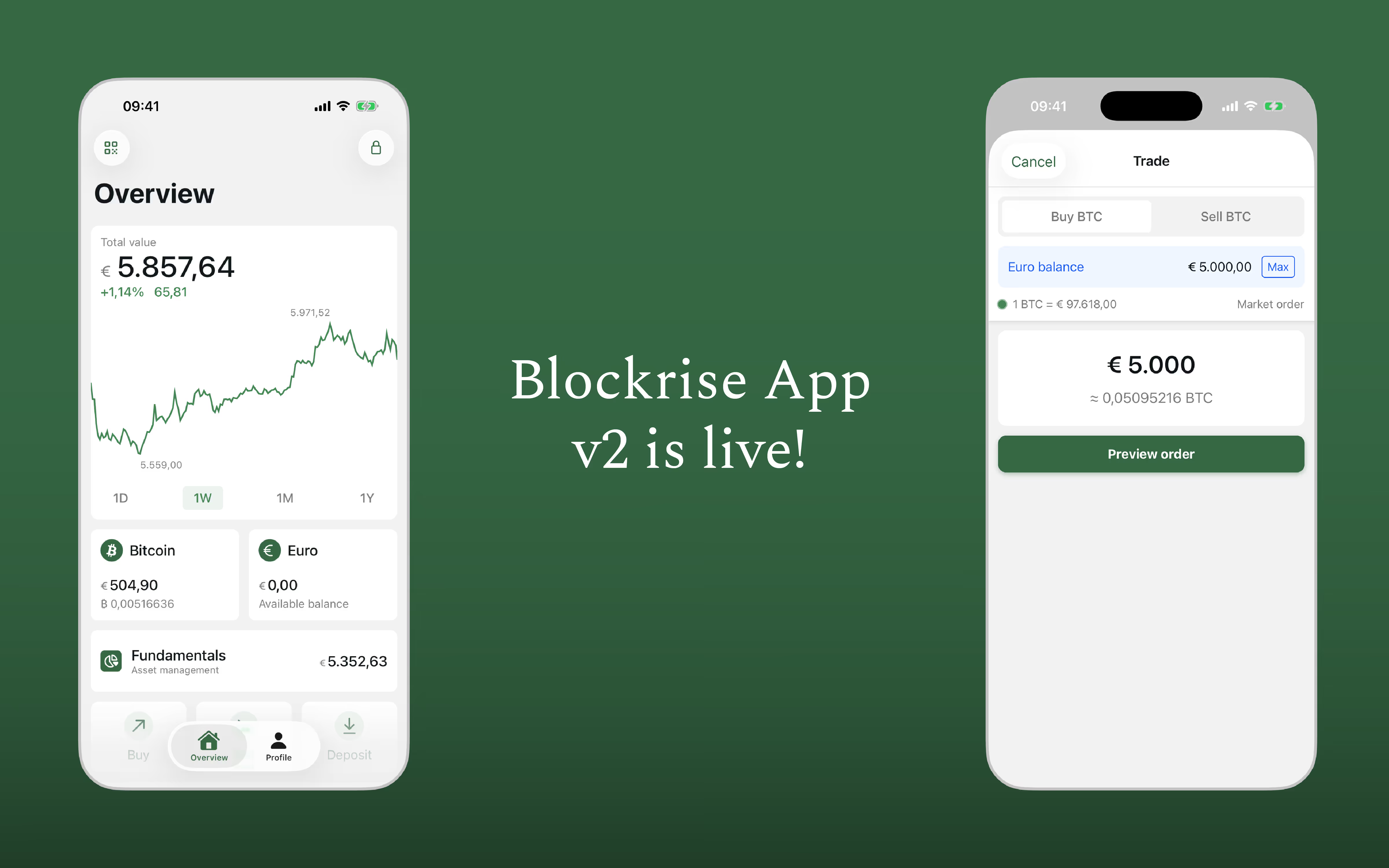Subscribe to our newsletter
Stay informed about our latest developments and updates!
How do Bitcoin fees work?
When a Bitcoin miner successfully creates a new block on the blockchain, they are rewarded with a block reward. But that is only one aspect of the reward. Transaction fees paid by users, the blockchain fees, are also paid to miners. In this article, we explore the concept of Bitcoin fees, and their usefulness.
The amount of blockchain fees
The minimum transaction fee is zero. Paying a blockchain fee for sending a Bitcoin transaction is entirely voluntary. But: the miners receive these blockchain fees and thus benefit from prioritizing the transactions that have been sent along the most fees.
Exchanges and brokers benefit from actually executing their transactions to avoid customer dissatisfaction. Therefore, they will always try to set their blockchain fees just high enough to allow transactions to go through.
So with that, blockchain fees are in fact network dependent. It is a game of supply and demand, dictated by how busy the network is. During times when the price of Bitcoin is high, fees tend to be higher as well.
As a result, someone who wants to transfer 10 euros in Bitcoin may even pay more than 10 euros purely in transaction fees. Therefore, for small investors, exchanges often group multiple transactions from different clients. The advantage: this way the transaction costs are shared and are lower per customer. The disadvantage: it is no longer possible to trace exactly which piece of the transaction belongs to which customer. Thus, the customer gives up control.
Fixed in the mempool
When too few transaction costs are included, as mentioned above, miners will prefer to give other transactions priority. In that case, the transaction may get stuck in the mempool. We simplify this idea:
The mempool is where all transactions are collected before they are executed. Think of it as a bus stop.
Everyone at the bus stop is waiting for the next bus (the next block). However, there are more people at the bus stop, than there is room on the bus. So the bus driver decides to let the best-paying people enter the bus and leaves the rest standing, waiting for the next bus. But between this and the next bus, new people have started to gather at the bus stop. So it can take as many as ten buses before the person who wants to pay the least can get on a bus.
After several days at the bus stop, someone is sent home: the transaction is deleted and will not be carried out if they are still stuck in the mempool by then. Each bus driver (miner) varies when this deadline expires and they send someone home.
Limited space in a block
The question for many is: why doesn't the bus company deploy larger buses so they can carry more people?
In 2017, this was a topic of discussion that eventually led to the creation of Bitcoin Cash (BCH). The group behind BCH wanted to use larger blocks to increase transaction speed and lower costs. Because the majority of the Bitcoin community was against this plan, they split from Bitcoin by creating Bitcoin Cash with a hard fork.
SegWit
Bitcoin itself found a solution to the problem of limited block size. With Segregated Witness (SegWit), the size of each transaction was reduced, allowing more transactions to be processed per block without adjusting the block size. Transactions to native SegWit addresses are typically about 70% cheaper in transaction fees.
Cryptocurrencies without fees
There are several other cryptocurrencies, or altcoins, that charge no or virtually no transaction fees. These often bear little resemblance to Bitcoin's technology.
Bitcoin also has its solution for (almost) no-cost transactions: the Lightning Network. This is a second-layer solution on top of the blockchain that enables microtransactions and aims to make Bitcoin available for daily payments. Even if you increased the block size, you would still have to wait for confirmation of a transaction, which is not practical in situations such as at the grocery store. For transactions of more than a few euros in value, the Lightning Network is less suitable.
%20and%20Jasper%20Hu%20(CTO)_2.jpeg)

